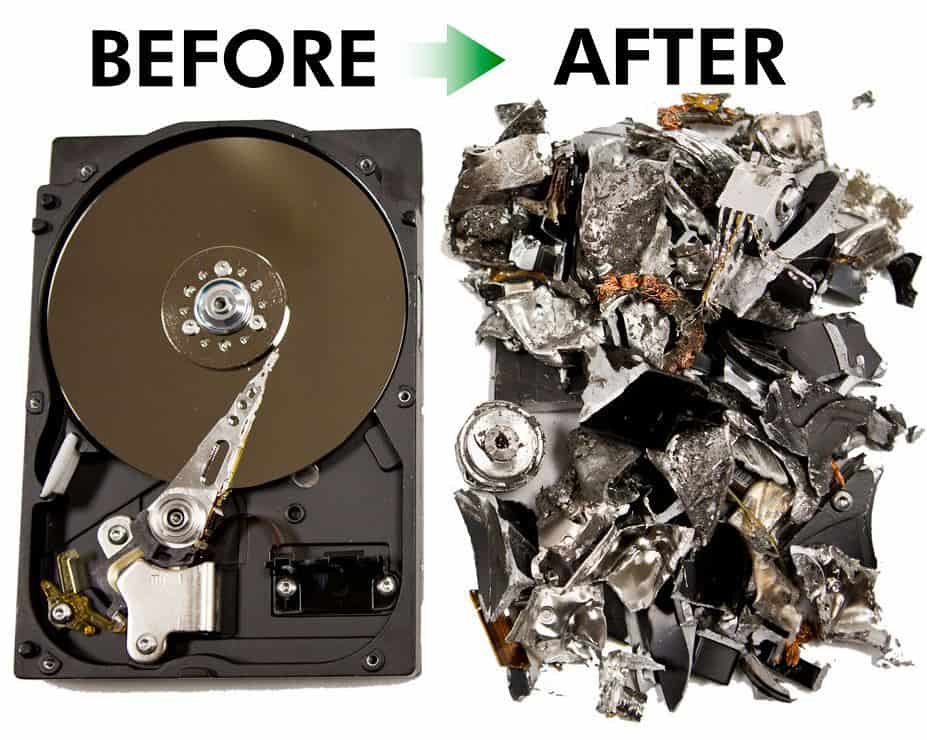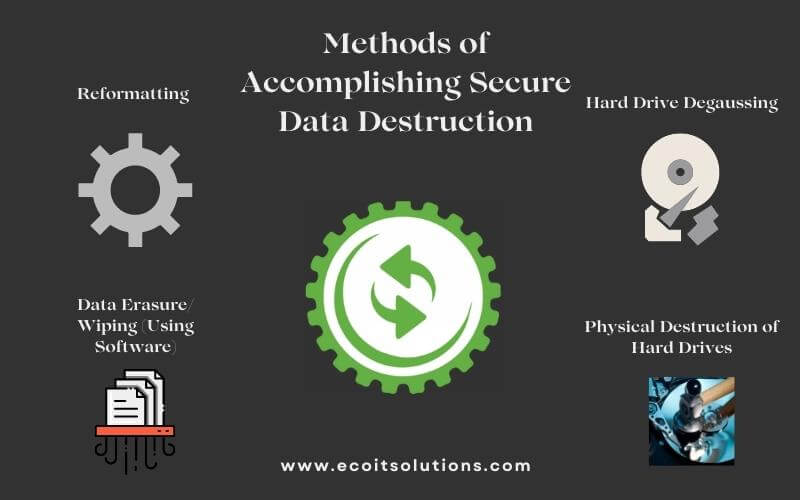Data Destruction Solutions: A Crucial Element in Your Cyber Security Method
Data Destruction Solutions: A Crucial Element in Your Cyber Security Method
Blog Article
The Crucial Nature of Information Devastation in Upholding Computer Protection Providers and Protecting Against Unauthorized Accessibility
In an age where information breaches and identification theft are progressively widespread, the value of effective data devastation can not be overstated. Organizations should identify that the failing to appropriately throw away delicate information postures not only legal and monetary risks but also a possible disintegration of client trust fund. Different methods, from data wiping to physical destruction, work as crucial safeguards against unauthorized accessibility. However, understanding the effects of data damage practices and conformity with policies elevates necessary questions concerning the competence of existing techniques and their long-lasting feasibility despite evolving hazards.
Relevance of Information Destruction
In a progressively digital globe, the value of information devastation can not be overemphasized. As organizations collect huge quantities of sensitive info, the prospective consequences of falling short to properly get rid of and take care of of that data end up being significantly serious. Data breaches, identity theft, and business reconnaissance present substantial threats, highlighting the necessity of reliable information destruction techniques.

Additionally, as technology evolves, so as well do the techniques through which destructive stars seek to manipulate delicate info. Organizations needs to continue to be alert and aggressive in their data damage methods to secure against these evolving hazards. By focusing on information devastation, firms not only secure their assets yet also foster depend on among customers and stakeholders, showing a dedication to responsible data administration and protection methods.
Techniques of Effective Data Devastation
To make certain the total and irreversible damage of delicate data, companies can use a variety of reliable approaches customized to their details needs. Among one of the most usual techniques is information wiping, which involves making use of specialized software application to overwrite existing information numerous times, making recovery practically difficult. This is especially useful for disk drives and solid-state drives, where conventional deletion approaches are insufficient.
Another reliable technique is degaussing, which makes use of strong magnetic areas to disrupt the magnetic domain names on storage space media, providing the information irretrievable. This method is especially matched for magnetic storage space tools, such as disk drive and hard drives.
Physical devastation is likewise a practical option, including the shredding, squashing, or incineration of storage tools. This method assurances that information can not be recouped, making it optimal for organizations managing very delicate info.

Conformity With Information Defense Laws
Organizations have to not only focus on reliable data damage methods however additionally make sure compliance with information defense laws that regulate how sensitive info is handled and taken care of. Abiding by these guidelines is crucial for keeping and safeguarding individual information customer depend on. Rules such as the General Information Defense Guideline (GDPR) in the European Union and the Medical Insurance Mobility and Liability Act (HIPAA) in the USA impose rigorous standards on data management, which include demands for the safe and secure disposal of sensitive info.
To achieve compliance, companies should apply thorough data devastation plans that line up with these lawful frameworks. This consists of determining data that needs destruction, developing protocols for secure methodsâEUR" such as shredding physical media or using software program that fulfills industry requirements for data wipingâEUR" and keeping comprehensive records of destruction activities. Regular audits ought to be performed to guarantee adherence to these plans and to determine any kind of possible locations for improvement.
Failing to follow data defense guidelines can lead to substantial lawful implications, including hefty fines and damage to a company's reputation. Incorporating compliance into data destruction practices is not just a lawful responsibility but additionally an important element of a robust info safety and security method.
Effects of Poor Data Handling
Poor data handling can result in severe effects that extend past instant operational obstacles. Organizations might face considerable economic losses as a result of data breaches, which often result in expensive remediation efforts, legal costs, and governing penalties. These monetary ramifications can stress sources and look at more info impede growth, ultimately impacting a company's lower line.
Moreover, bad data handling can significantly harm an organization's online reputation. Consumers, stakeholders, and companions may lose rely on an entity that fails to shield delicate information, causing lowered customer loyalty and potential loss of organization opportunities. This erosion of trust fund can take years to restore, if it can be recovered in any way.
In addition, companies could face lawful ramifications arising from non-compliance with information defense policies. Such infractions might lead to investigations and fines, compounding the monetary burden and more staining the organization's image.
In the realm of cybersecurity, insufficient data administration methods can produce susceptabilities that make systems extra susceptible to unapproved access and cyberattacks. Eventually, these repercussions emphasize the critical value of carrying out robust data taking care of procedures to guard delicate details and maintain business stability.
Best Practices for Secure Information Disposal


First Clicking Here of all, data must be classified according to its sensitivity. Delicate details needs a lot more extensive disposal techniques, such as shredding physical records and utilizing advanced software program for digital data wiping. Employing qualified information damage solutions guarantees compliance with market laws and standards.
Second of all, organizations must implement an information disposal plan that mandates routine audits. This plan ought to lay out the treatments for information retention and destruction, making sure that outdated data is dealt with promptly and safely. Educating workers on these procedures is vital to cultivating a culture of safety and security understanding.
Lastly, keeping comprehensive records of disposed data improves liability and supplies a clear audit trail. This paperwork should consist try this of the kind of data destroyed, the technique utilized, and the date of disposal.
Verdict
Adopting durable approaches such as data cleaning, degaussing, and physical damage, along with conformity with policies like GDPR and HIPAA, is important for guarding sensitive details. Overlooking proper information disposal practices can lead to severe consequences, including data violations and lawful repercussions.
In a period where data violations and identity burglary are increasingly widespread, the significance of reliable information damage can not be overemphasized. data destruction. Information violations, identification burglary, and company espionage pose substantial risks, underscoring the need of reliable information devastation practices
Compliance with guidelines such as GDPR and HIPAA requireds that organizations apply strict information protection measures, consisting of the protected damage of data at the end of its lifecycle.
By focusing on information damage, business not only shield their assets however also foster trust fund amongst clients and stakeholders, showing a commitment to liable data administration and security techniques.
Organizations have to not just focus on reliable data devastation methods yet also make sure conformity with data security laws that govern exactly how sensitive info is dealt with and disposed of.
Report this page